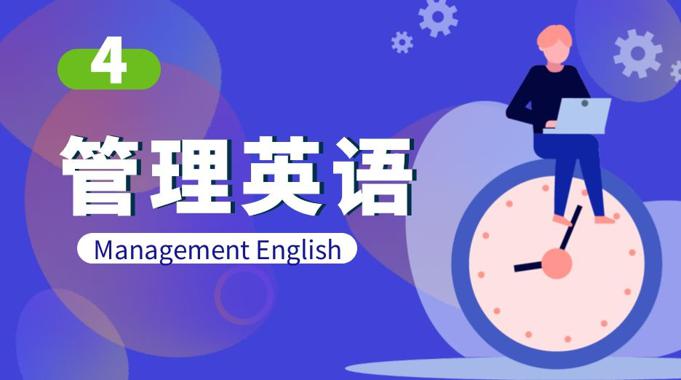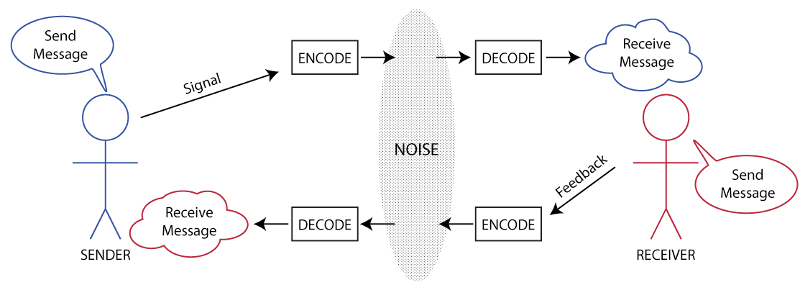《管理英语4》Unit 6 Listening and Speaking 2
导语
个人应对职场变化最好的方式就是学习,通过学习能不断提升自己,使自身在职场中一直有竞争力。
听我和Smith讨论通过终身学习来应对变化。
对话演练
(Melinda meets Smith at Starbucks and talks about lifelong learning to respond to the changes.)
(梅琳达在星巴克见到史密斯,与他一起谈论终身学习以应对改变的话题。)
Smith:Hi, Melinda. Haven't seen you for ages. What are you up to these days?
史密斯:你好,梅琳达。很久不见了,最近在忙些什么呢?
Melinda:I'm just back from a seminar.
梅琳达:我刚从一个研讨班学习回来。
Smith:Great. What was the theme of the seminar?
史密斯:很好。研讨班的主题是什么呢?
Melinda:It was “Change Management in the Workplace”.
梅琳达:是“职场变化应对管理”。
Smith:Sounds interesting. I hear change management is popular in industrialized countries.
史密斯:听起来很有趣。听说在工业化国家,变化应对管理可流行啦。
Melinda:Quite right. You know we're faced with change all the time. People often talk about growth, innovation, redundancy, outsourcing, relocation and competition. As a matter of fact, all these signal change.
梅琳达:没错。我们总是面临着改变,这你知道。人们经常谈论发展、创新、裁员、外包、搬迁、竞争,等等。事实上,所有这些意味着改变。
Smith:You seem to have learned a lot from the seminar, Melinda.
史密斯:梅琳达,看来你从研讨班还真学到了不少。
Melinda:Well, you see, change management has been a hot topic in academic discussions for quite some time. For example, a whole chapter deals with change in the book Essentials of Management: An International and Leadership Perspective written by Harold Koontz and Heinz Weihrich.
史蒂夫:但我本身是个更适合出主意的人。我会提出想法,使它们开始实施,但跑腿的工作我并不擅长。
Smith:I'm really impressed. But in the first place, I'd like to know where the forces for change come from.
史密斯:是不是真的!?但首先,我想知道改变的动力来自何处。
Melinda:According to Koontz and Weihrich, the forces for change may come from the internal and external environment.
梅琳达:在孔茨和韦里克看来,改变的动力来自内部环境和外部环境。
Smith:Can you be more specific?
史密斯:能讲具体点吗?
Melinda:Of course. One obvious trend is that as education extends into adult life, lifelong learning becomes necessary. Therefore, universities as well as enterprises must meet the special needs of adults.
梅琳达:好吧。有一个明显的趋势就是,随着教育延伸到成人阶段,终身学习变得必要起来。因此,大学以及企业必须满足成人的特殊需求。
Smith:Speaking of changes, are there any that will effect organizational development?
史密斯:说到变化,有没有什么变化会影响企业的发展?
Melinda:Sure. With the deepening of China's economic reforms, there is greater cooperation and interdependence between the private and the public sector. We should all learn how to manage change in this new environment and improve work effectiveness.
梅琳达:当然有啦。随着中国经济改革的深入,私有企业和公有企业之间有更多的合作和相互依存关系。在这种新环境下,我们都应学会应对变化,提高工作效率。
Smith:Well, you are being very helpful and informative. I'd like to hear more. But I've got to run to a meeting. Nice meeting you.
史密斯:嗯,你这下可帮了我大忙,提供了不少信息。真想再多听你讲讲,不过我得赶紧去开个会。很高兴见到你。
Melinda:Nice meeting you. See you.
梅琳达:我也是。再见。
Useful Expressions
• Emphasize on something
It is crucial for us to be flexible enough to change.
We must explain to the employees why this change is necessary.
The best strategies to combat this resistance are through open conversation and employee participation.
• Describe a tendency or trend
This will be a great change in the manufacturing process and policies.
The best strategies to combat this resistance are through open conversation and employee participation.
I'm afraid there'll be a loss of productivity during the change.
One obvious trend is that as education extends into adult life …
Check it Out
英语句子的种类
通常,我们可以根据句子的用途和结构对句子进行分类。根据用途,英语句子可以分 为四类:陈述句(declarative sentence)、疑问句(interrogative sentence)、祈使句(imperative sentence)和感叹句(exclamatory sentence)。
陈述句用于说明事实或陈述看法。例如:
I'm just back from a seminar.
疑问句用于提出问题。例如:
What was the theme of the seminar?
祈使句用于提出请求、建议或发出命令。例如:
Don't be stiff.
感叹句用于表示说话人的惊奇、喜悦、愤怒等情绪。例如:
What a good idea!
Workplace Tip
SMART Action Plan(SMART 行动计划)
SMART stands for “specific”, “measurable(可测量的)”, “achievable(可完成的)”, “relevant(相关的)” and “timed(定时的)”. These are the criteria which should be applied to all objectives and action plans. Specific: An objective or action plan should not be too vague; it needs to be precise(精确的,明确的).
Measurable: An objective or action plan can be assessed; it is quantifiable(可以计量的) and not open-ended(开放式的,无限制的).
Achievable: An objective or action plan should be realistically possible.
Relevant: An objective or action plan should fit the overall aim of the company.
Timed: An objective or action plan should clearly outline exactly when steps will be taken.



